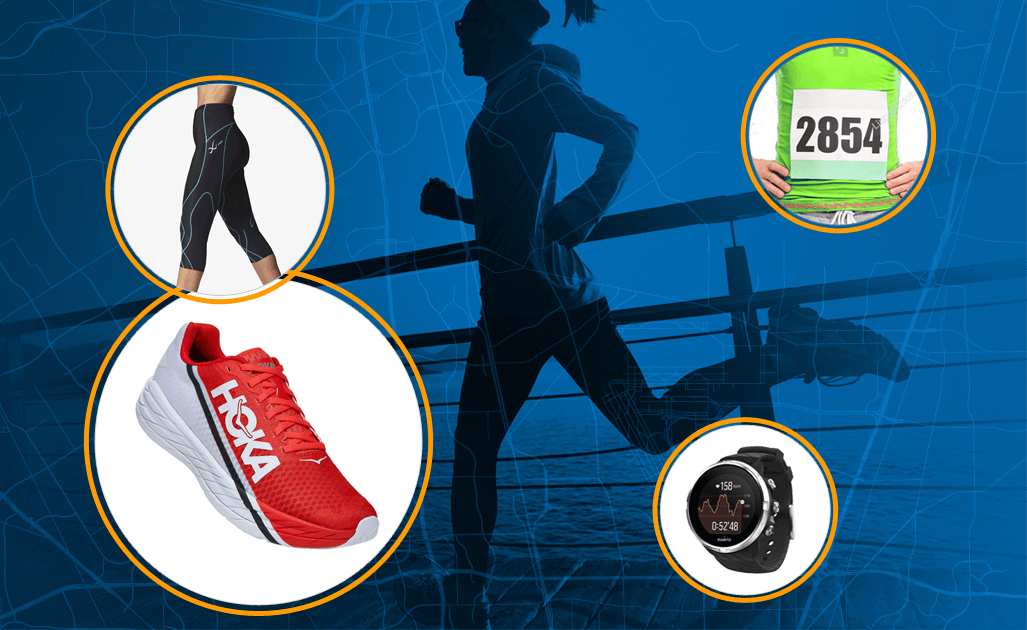Ever wonder what the health benefits of yoga for runners are?
As much as running can benefit our overall health, it can also do some serious damage.
There’s no denying the fact that running makes for a healthy body and mind, it...
On the other side of the coin, running is hard on the mind and body.
In order to build up all that physical and mental strength, it has to wear us down first.
The act of running itself...
Running is hard. It's stressful. Yes, the very thing that we so often turn to for stress relief also adds its own stress.
When you recognize running is hard, you can take steps to deal with it. Check out these 6 amazing mind+body benefits of yoga for runners.
Some levels of stress contribute to the strengthening process.
When those stress levels reach a tipping point, though, they no longer help build any kind of strength.
It’s like filling up a glass with water. The cup gets heavier as more water flows in and is harder to lift, but it’s still possible to carry all that water around with enough effort.
That’s only true so long as the water stays inside the cup. Once the cup starts to overflow, at least some of the water drips onto the floor and we might even spill the whole thing.
The point here is that trying to carry too much means that we risk losing some, or all, of what we’re working so hard for.
Endless running, day in and day out, without a reprieve has the same effect as trying to keep an overflowing cup from spilling. Plus, running isn’t usually the only source of stress in life.
Most of us have:
No matter our best intentions, everything can add up to become too much to manage.
Our bodies break down without the chance to rebuild, and our minds can’t handle the constant barrage of stress hormones that interrupt rational thought patterns. Welcome to Burnout 101.
For athletes who take their training seriously, it’s pretty easy to make these mistakes.
Been there, done that?
If running is hard, is there anything you can do about it?
To prevent overtraining or stop it in its tracks, runners need to learn how to slow down.
To prevent overtraining or stop it in its tracks, runners need to learn how to slow down.
—Lucie Hanes
Yes, most training plans include at least a few “easy” days where the focus lies in running at a comfortable pace with limited exertion.
These days help balance out the long runs and intense workouts that form the basis of a normal training week.
But even easy days add miles, and weekly rest days only go so far.
Neither one holds the power to fully counteract a heavy stress load.
That’s where regular routines that focus on establishing balance, calm, and stillness come in.
Yoga and meditation practices have flourished in Western culture over recent years, and can seem like just another trend from an outside perspective.
Many snapshots of yoga in the media do fit the “fad” criteria: rooms full of young white women wearing expensive athleisure come to mind.
A closer look into the origins of yoga, an ancient Indian practice grounded in spiritual connection through physical and mental release, puts these concerns in perspective.
At its core, yoga serves as a means to get in touch with our most central selves.
Yoga practices ask us to set aside everyday burdens so that we can remember who we are instead of just what we do.
Yoga offers a huge range of physiological and psychological tools to help combat the everyday stresses that plague runners.
Physically, yoga gives runners the chance to pay close attention to bodily sensations and imbalances.
Regular stretching addresses:
So what are the six Mind+Body Benefits of Yoga for Runners?
Yogi and runner Bryan Cunningham, founder of Inhale Exhale Run, claims that she “would have broken a long time ago” without yoga.
She’s maintained a regular yoga practice for over a decade now, and first took a class when a high school mentor recommended it as a complement to her running.
While her relationship with running has changed over the years, and naturally fluctuates throughout the seasons, yoga remains a constant because it serves as the grounding factor for all other aspects of her life.
Taking time every day to tune in to the state of her body allows her to immediately recognize when something just feels “off,” which helps her address injuries and illnesses before they snowball.
Mobile hips, knees, ankles, feet all contribute to fluidity in running.
Stiffness due to tight muscles or rigid joints restricts a runner’s stride.
A greater range of motion directly translates to higher speeds and steadier footwork.
In addition to limiting range of motion in running, tightness makes us more susceptible to injury.
Think about it this way: A malleable rubber band can withstand much more wear and tear than a brittle twig, for instance.
All runners know that they should strength train, but I could probably count on one hand the number of runners I know who actually do.
I get it...it’s a hassle to make a trip to the gym, especially when a few extra miles sound way more fun or you’re already worn out from your runs.
But skipping strength work will only come back to bite runners in the butt, because running alone doesn’t cover all the bases.
Yoga presents an alternative to the weight room when it comes to strength training.
Holding precarious positions as part of a yoga practice is a kind of bodyweight strength training that some runners may find more accessible and enjoyable than traditional weight lifting.
Yoga will make you a stronger runner. But the benefits go far beyond strength...
Running gives us plenty of time to think.
Yvonne DeGorter works with a wide range of athletes at her studio, Yoga Off Broadway, due to its prime location in the middle of Colorado’s Western Slope - a hub for outdoor sports and adventure.
“Yoga asks us to be present,” she says. “This balances out the ‘escape’ that a lot of people seek in running.”
“Yoga asks us to be present. This balances out the ‘escape’ that a lot of people seek in running.”
—Yvonne DeGorter
When we’re running, our brains usually remain very active thinking about past regrets, future worries, or digging around for answers to problems that may not even have solutions.
All that internal chatter, productive or not, still saps plenty of mental energy.
Yoga teaches us to put all of that aside for the time being so that we can actually recharge.
Running keeps us on our toes - literally.
Fast-paced movement...
While that’s fine as a temporary response, it’s important to return to a calm state after the fact.
“It comes down to Yang versus Yin,” Yvonne explains. “Yoga, especially a restorative and slow practice, balances out high-intensity running. It calms the nervous system and lets the brain come down from flight-or-flight.”
“Yoga, especially a restorative and slow practice, balances out high-intensity running. It calms the nervous system and lets the brain come down from flight-or-flight.”
—Yvonne DeGorter
Staying stuck in that mode as a result of a disparity between energetic Yang and peaceful Yin leads to hormone imbalances, anxiety, and illness.
Let’s face it, running is hard.
It requires a ton of patience and effort.
Runners understand the sheer force of will it takes to:
As much as we train our bodies to withstand that kind of pressure, sometimes it’s our brains that give out first.
“Yoga builds resilience by teaching us to sit in discomfort,” according to Yvonne, which makes it easier to recognize our true limits instead of tapping out early.
“Breathwork in yoga helps with visualization,” Brynn adds, “because it calms down the mind.” We’re better able to visualize success from a focused state than a frazzled one.
Running is hard on your mind and body. If you want to be a better runner, make space for yoga.
“Establishing a yoga practice should not add more stress to your life,” Yvonne emphasizes.
She encourages runners to start small so that yoga feels manageable.
“Focus on slowly introducing yoga in small doses without huge expectations, and those feelings of success will build on each other.”
For busy runners, Yvonne suggests taking up a flexible practice that fits your lifestyle instead of forcing your lifestyle to fit with yoga.
If we can reduce the number of “excuses” that make it easy to push yoga to the side (travel time, class costs, schedule conflicts, etc.), then including it in our regular routines becomes that much more feasible.
Yvonne’s online yoga program, Stay @ Om, aims to do just that.
She made good use of the initial COVID shutdown by launching a database of on-demand classes of all styles, intensities, and durations all taught by her own cohesive team.
In short, have patience and grace with yourself when easing into yoga - a lesson that, if you stick with it, will carry over into all levels of your practice from here on out.

Login to your account to leave a comment.
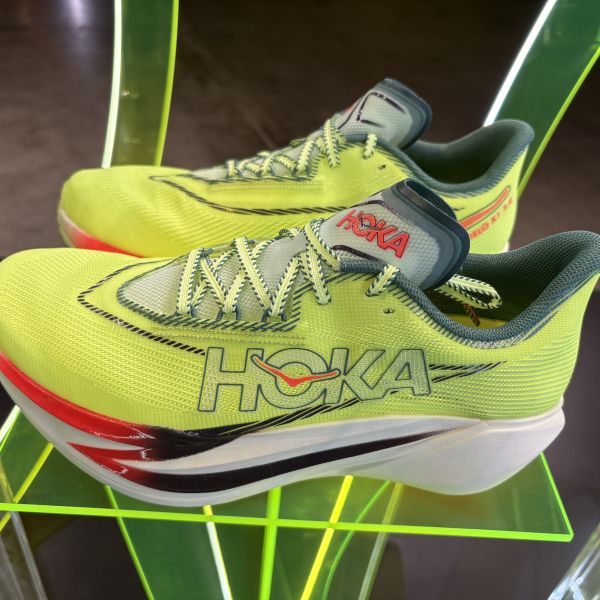

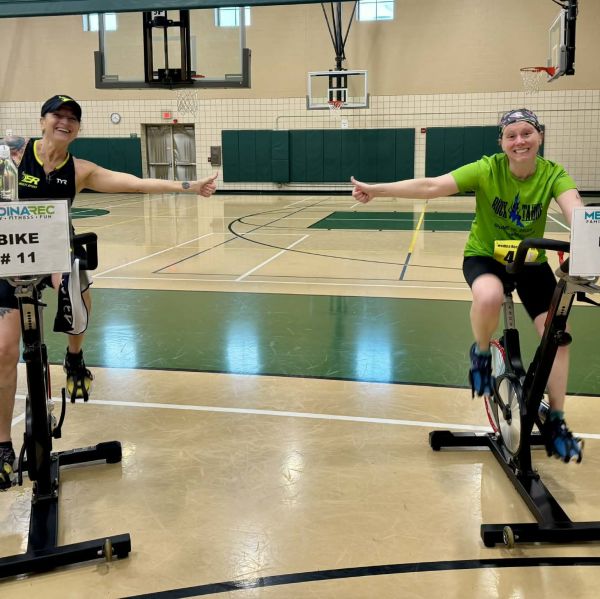
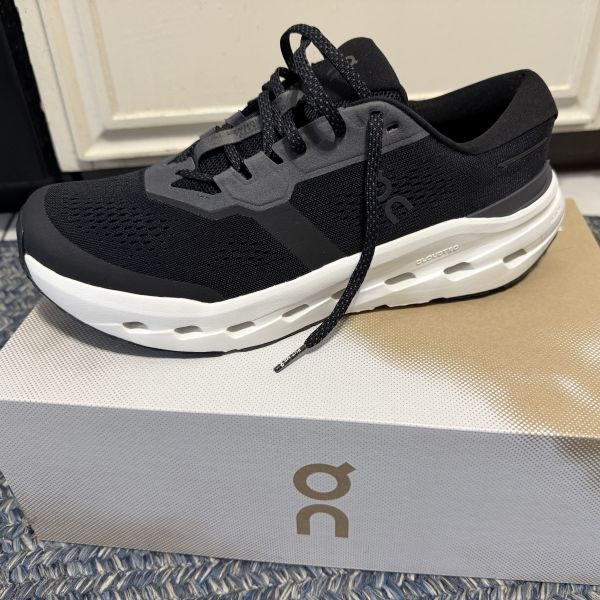
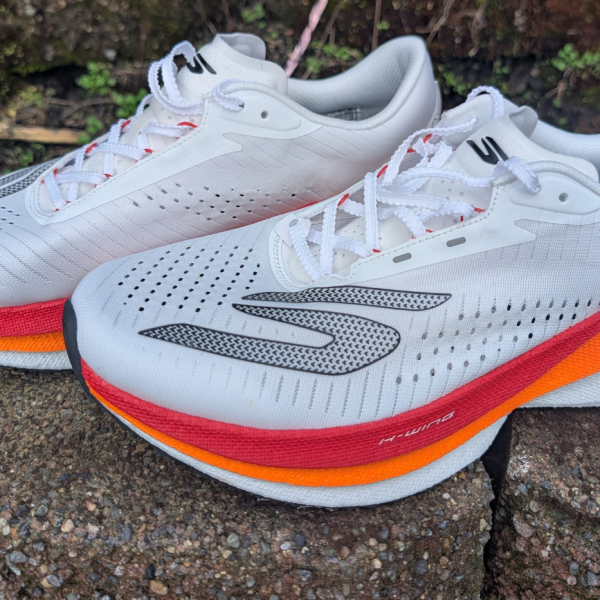
We Want to Give it to You!
